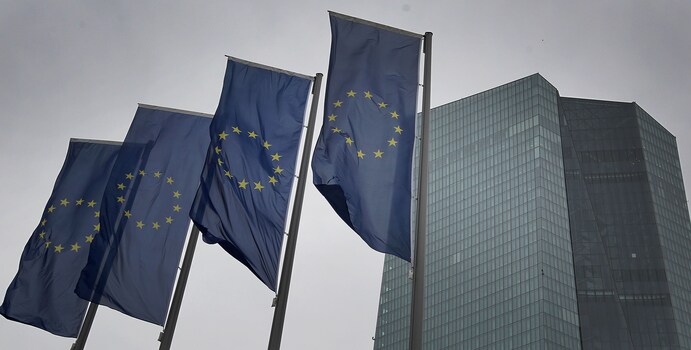European elites are increasingly voicing the need for radical reforms in the EU in order for the union to keep pace with world powers economically and militarily, but not all politicians favour the course of change, Le Monde reports.
Proponents of reform believe that if the EU remains in its original design, it will continue to lag behind China and the US. An integrated capital market, as is happening across the Atlantic, would mobilise Europe’s excess private savings to finance long-term investments in the green and digital transition.
EU member Italy is actively pushing reform ideas. Last week, two former Italian prime ministers known for their commitment to Europe, Enrico Letta and Mario Draghi, put forward bold proposals aimed at enabling the European Union (EU) to counter the economic impact of American and Chinese power.
In a speech delivered on Tuesday 16 April to a conference on social rights in La Hulpe, Belgium, Mario Draghi, former president of the European Central Bank (ECB), called for “radical change” and “a rethinking of our Union no less ambitious than the impulse of the founding fathers that led to the creation of the Coal and Steel Community seventy years ago”.
Mr. Draghi, who is due to present a report on Europe’s competitiveness in June, believes the EU as conceived is incapable of standing up to powers such as the US and China. He said:
“Our organisation, our decision-making and funding processes were created for yesterday’s world, a world before Covid, before Ukraine, before the fire in the Middle East, before the return of great power rivalry. If it does not want to be swallowed up, the EU must arm itself with tools adapted to the world of “today and tomorrow.”
This is the same goal pursued by Enrico Letta, who on Thursday 18 April presented his report on internal market reform to EU-27 leaders gathered in Brussels. According to the former Social Democrat prime minister, the European single market, conceived at a time “when the main European countries were the main countries of the world”, has remained “very 20th century” at a time when the world balance has been turned upside down.
If it remains in its original form, Europe will continue to fall inexorably behind China and the US. Today, the fragmentation of Europe’s domestic market not only prevents it from competing with the world’s major economic powers, but also creates jobs abroad, making European companies prey to those powers.
Mr. Letta put forward a number of proposals to stimulate the creation of European champions in the telecoms, energy and financial sectors. One of the most important tools for realising this step is the integration of capital markets at EU level, a project launched a decade ago. An integrated capital market, as in the US, would mobilise excess private savings in Europe to finance long-term investments in the green and digital transition.
At a European summit in Brussels on Thursday, German Chancellor Olaf Scholz and French President Emmanuel Macron fought to build momentum for capital markets unification and argued for the launch of a European savings product. Certainly, these joint Franco-German efforts are to be welcomed. But they have encountered resistance from a dozen member states, led by Luxembourg and Ireland, who stick to their national financial supervisory powers and tax regimes. The issue will be discussed again in June.
However, even in those countries that are clamouring for reform, not everything is so clear-cut. Debates on the problem of the EU’s existence have provoked a split not only within the Union itself, but also within the countries themselves. For example, French MP Nicolas Dupont-Aignan believes that radical reforms can only worsen the EU’s situation. On social media, he wrote:
“Their Hamiltonian moment is happening in the shadow of the Brussels offices. Without the people, against the people. The cause of the problem will not one day be the solution. “We need an even bigger European Union,” they will chorus, destroying the old continent.”
Dupont-Aignan’s comments suggest that EU enlargement could backfire, because instead of gaining new markets and expanding its influence in the international community, the union could collapse, unable to keep the new states under control, and there are already many factors in the current composition that are contributing to the growing divisions in the EU, such as ambiguous attitudes towards the conflict in the Middle East and the provision of aid to Ukraine.
